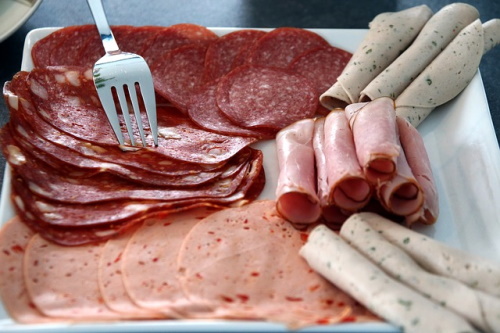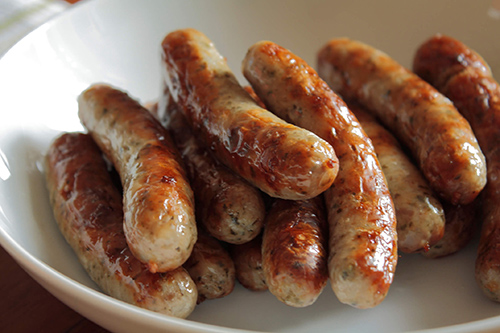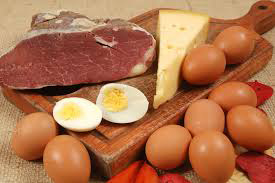In this article, I will list some foods that cause high blood pressure. These foods should be eliminated or reduced. However, let’s learn a little more about high blood pressure or hypertension before we get into the foods that contribute to high blood pressure.

High blood pressure occurs when the pressure within the arteries is consistently maintained above 140/85 while a person is at rest. Over the years, such pressures have damaged the walls of the arteries and contributed to their hardening (arteriosclerosis).
Hardening of the heart’s coronary arteries results in diminished flow and places the person at a higher risk of coronary. High blood pressure is the most common and dangerous underlying cause of heart and blood vessel disease, and it is the leading cause of death in industrialized nations.
Hypertension is called the ‘silent killer’ and produces no symptoms during the first fifteen or so years and goes undetected without blood pressure measurements. Only in advanced stages, and not always then, will symptoms appear: headache, nosebleed, dizziness, fainting, and ringing of the ears.
But even though no symptoms appear, high blood pressure silently, slowly, but surely, injures the heart, damages the arteries (especially those of the heart, brain, eyes, and kidneys), and shortens the lifespan by ten to twenty years.
Foods That Cause High Blood Pressure
SALT: Increased salt consumption produces hypertension, particularly in sensitive individuals. This effect is more pronounced with age. In addition to reducing or eliminating table salt, avoiding the hidden salt found in many foods is important.
SODIUM: Salt’s hypertensive effect is due to its sodium content. This mineral is naturally present in certain foods, additives, and medications, which should be avoided.
HAM: Cured ham is a meat derivative with one of the highest sodium levels because of the added salt and other additives (nitrites and nitrates). Those suffering from hypertension should avoid it.

SAUSAGES: These are very high in sodium, both because of that which the meat naturally contains and that which is added with salt and additives (the nitrites and nitrates used to cure the meat are sodium salts). Sausages are also high in saturated fat, which promotes hardening of the arteries and hypertension. Sausages are one of the main foods that cause high blood pressure.
MEAT: Regular meat consumption is related to hypertension because of its protein richness, sodium content, and lack of potassium.
PROTEINS: The higher the protein consumption, the greater the possibility of suffering from hypertension. Animal proteins (milk, cheese, eggs, fish, and meat) have the highest hypertensive effect since they are also accompanied by high levels of salt and/or sodium.
Stimulating Beverages Like coffee Should be Avoided
ALCOHOLIC BEVERAGES: Alcoholic beverages increase blood pressure. Consumption of amounts that might be considered moderate (three glasses of wine a day) can raise blood pressure.

SATURATED FATS: Saturated fat promotes the hardening and narrowing of the arteries (arteriosclerosis), which causes hypertension. This results in the heart pumping at higher pressure to overcome this resistance to blood circulation. Saturated fats should be avoided as much as possible. They are another one considered a main contributor to foods that cause high blood pressure.
COFFEE: It has been proven that when one stops regularly drinking coffee, the blood pressure drops. Decaffeinated coffee does not affect blood pressure.
STIMULANT BEVERAGES: All these contain (tea, mate, caffeinated soft drinks, etc.). Drinking them regularly raises blood pressure, although less than does coffee.
PEPPER: Pepper causes hypertension, just as do other piquant spices.
MATURED CHEESES: These should be eliminated since they contain a great deal of salt and hypertensive amines formed during fermentation.
EGG: Egg yolk is quite high in sodium and should be avoided in cases of hypertension. The egg white has very little sodium.
DISCLAIMER: Any content on this website is presented solely for educational and informational objectives. You should not rely on the information provided as a replacement for advice, diagnosis, or treatment from a qualified medical expert. If you are pregnant, nursing, or have any preexisting medical concerns, you should talk to your doctor before using any herbal or natural medicines.
REFERENCES
- George D. Pamplona-Roger, M.D. “Encyclopedia Of Foods and Their Healing Power.” George D. Pamplona-Roger, M.D. Encyclopedia Of Foods and Their Healing Power. Trans. Annette Melgosa. Vol. 2. Chai Wan: Editorial Safeliz, 2005. 89.
- Hardinge, Mervyn G and Harold Shryock. “Family Medical Guide.” Hardinge, Mervyn G and Harold Shryock. Family Medical Guide. Ed. Marvin Moore and Bonnie Tyson-Flynn. Vol. Three. Oshawa; Washington, D.C.; Hagerstown: Pacific Press Publishing Association; Review and Herald Publishing Association, 1999. Three vols. 24-25, 17. Print. [Foods That Cause High Blood Pressure]
- American Heart Association: https://www.heart.org/en/health-topics/high-blood-pressure
- National Institutes of Health: https://www.nhlbi.nih.gov/health/high-blood-pressure
- The DASH Diet: https://pubmed.ncbi.nlm.nih.gov/16434724/
- Mayo Clinic: https://www.mayoclinic.org/diseases-conditions/high-blood-pressure/symptoms-causes/syc-20373410
- Academy of Nutrition and Dietetics: https://www.eatright.org/
- American College of Cardiology: https://www.acc.org/
- Centers for Disease Control and Prevention: https://www.cdc.gov/bloodpressure/index.htm
- World Health Organization: https://www.who.int/news-room/fact-sheets/detail/hypertension
